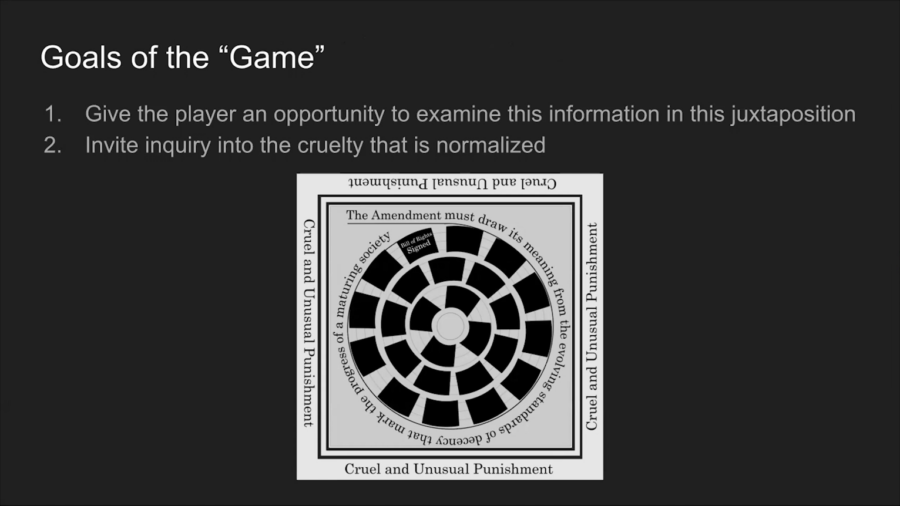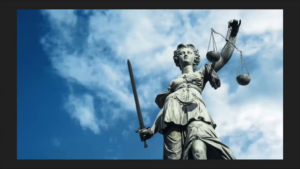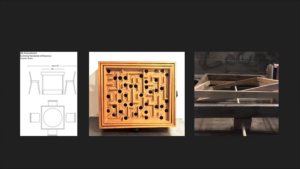Golan Levin: Welcome back to Shall Make, Shall Be. Next up, we’re pleased to be joined by Danielle Isadora Butler, whose project considered the Eighth Amendment, excessive punishment.
Danielle Isadora Butler designs experiences, installations, and objects that create new opportunities for emotional connection. She has designed and produced playgrounds that teach about cooperation, multi-sensory poetry archives that encourage deep listening, and large-scale games that connect participants to their locales. Her skills in human-centered design extend from a background that combines arts education, creative technology, and restorative justice. Butler believes that building relationships is the key to engaging people in issues that feel too large or abstract to comprehend. She is especially passionate about improving access to water and using creative interventions to deepen New Yorkers’ relationship to their harbors. She’s cofounder of both the Tideland Institute and the Awesome On The Water organization, which support cultural initiatives on New York waters.
Folks, I’m pleased to welcome Danielle Isadora Butler. Hi Danielle.
Danielle Isadora Butler: Hello!
Levin: Welcome. Take it away.
Butler: Thanks Golan. And thank you for those who are watching these talks.
My name is Danielle Butler. I use she/her pronouns. And I’m joining you from the Lenape land of Brooklyn, New York. I’ll be telling you about my interactive piece on the Eight Amendment and how I arrived at this design. I’m an artist and designer. Most of my work is centered on relationship-building. I’m specifically interested in how to create experiences that allow us to emotionally connect to topics that are large and overwhelming. Much of my current work is centered on the waterways of New York and building created ecosystems that enable us to make a more integrated and connected future on the water and the systems that allow our city to function. I’ll tell you about a few of my past projects as a way of orienting you to the design philosophies that I used in making this Eighth Amendment project.
I believe that one of the hardest things about engaging people in a large complex issue of punitive justice or place in the environment is finding the right way in, finding a small but meaningful piece of the story to connect to. This piece I co-created in 2020, New York’s Most Socially Distanced Office. It uses humor, visually telling a joke that because of our shared trauma we now all get. And in doing so, it is a little bit of a release valve.
In New York, there is a boundary around the water. We look at it but we rarely question why there aren’t more ways to get to it and on it. By putting the familiar—an office complete with computer, desk, filing cabinet, and water cooler—on the water, we are gently breaking a perceived boundary and suggesting that the water is a place.
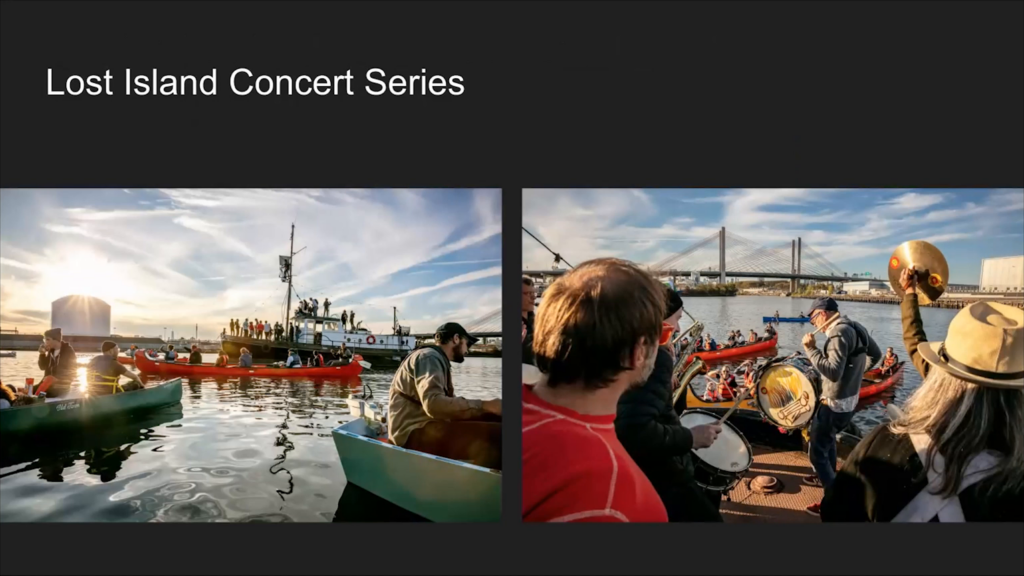
Bringing people physically onto the water takes this one step further. These are images taken at the Lost Island concert series at a place where Mussel Island once was. The island was dredged out in the 1920s to make the Newtown Creek more navigable for industrialized uses of the canal. We held a paddle-in concert over that spot. A sixteen-person brass band used the decks of a historic tugboat as a stage and over forty canoes and miscellaneous craft paddled in. The Lost Island concert series celebrates New York Harbor while also inviting people to consider our complicated relationship with the water. When you arrive in your physical body at a place that is both polluted and teeming with life, you are suddenly more prepared to engage in the complexities of New York’s history and future on the water.
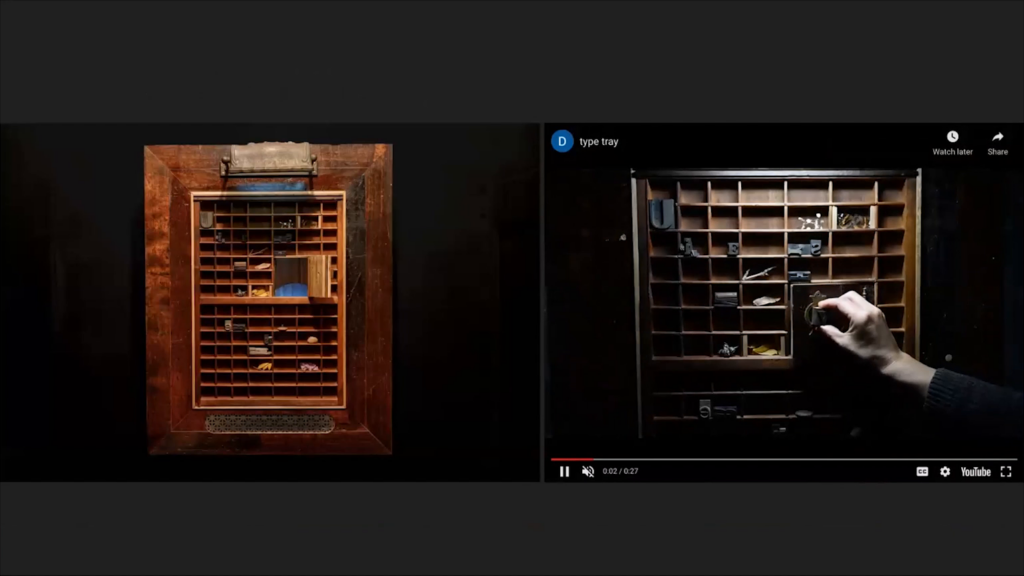
Exploration and surprise is a device for creating meaningful moments. When I was asked by the creator of Universe in Verse, a live performance series that showcases poems about science, to create a physical archive for their recordings, I thought about how to make an experience that gets you ready to listen to a poem.
I made a miniature natural science collection in a type tray and put a door inside it. It was not for everybody to discover. But if you did, if you took a chance and pulled open a small door, your curiosity would be rewarded with a periscope up to the heavens and a poem pulled at random just for you. The lights would dim, a subtle breeze would blow, and make a moment of calm focus for you to receive your poem.
You know that we feel something is more meaningful when we discover it or learn it for ourselves. I employed these methods of physicality, exploration, and finding a small part of the story to tell in my work for Shall Make, Shall Be.
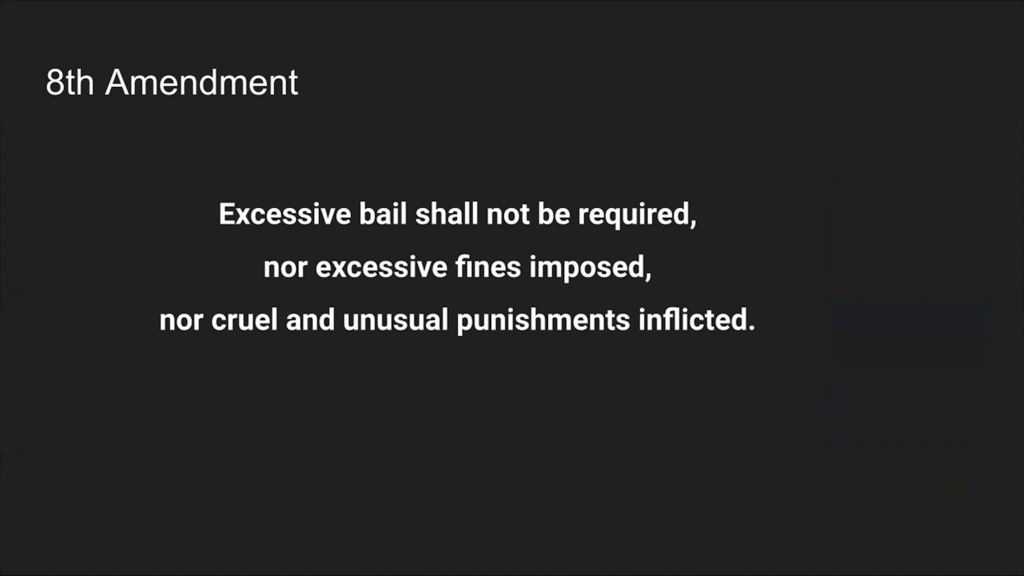
The Eight Amendment is the shortest of all of the amendments. Excessive bail shall not be required, nor excessive fines imposed, nor cruel and unusual punishment inflicted.
Just sixteen words. But what does it mean? What does “excessive” mean? And why does something have to be both cruel and unusual for it to be unconstitutional?
Our system for holding, punishing, and killing people is large and complex. It harms multitudes of people and communities, and is a place for instilled racism to play out legally. It felt daunting to find an entry point small and succinct enough for people to engage with this topic, do justice to the small platform that I have, and respect the people that were harmed by the lies that’re defined by this amendment, all within the context of a game. But I’ll tell you a little bit about my process.
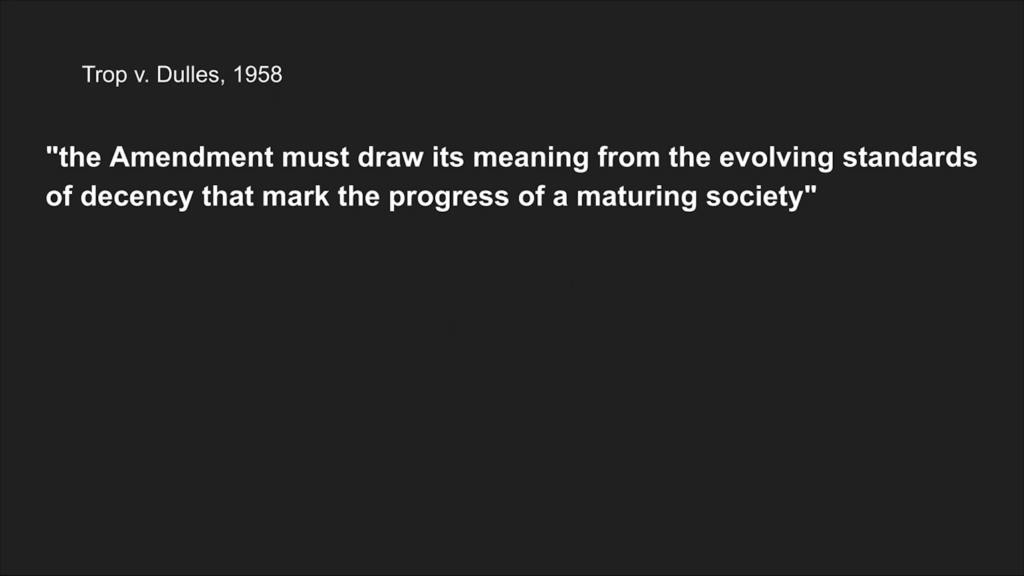
In the court case Trop v. Dulles in 1958, a potential interpretation is laid out. The Amendment must draw its meaning from the evolving standards of decency that mark the progress of a maturing society.
This benchmark is determined by courts examining prevailing opinions of state legislatures, sentencing juries, judges, and the American public. I find this phrase deeply fascinating for many reasons. It suggests an understanding and even an acceptance that we are not operating at our best, and that we are not as decent as we could be in the future.
Two, words like “evolution” and “maturing” suggest a linearity to this progress.
Three, it carries hope and the belief that we are evolving toward something better.
And four, if the standard is based on who we vote for and what we culturally accept, it shifts the onus of this change away from the vagaries of intractable bureaucracies and onto us, the public.
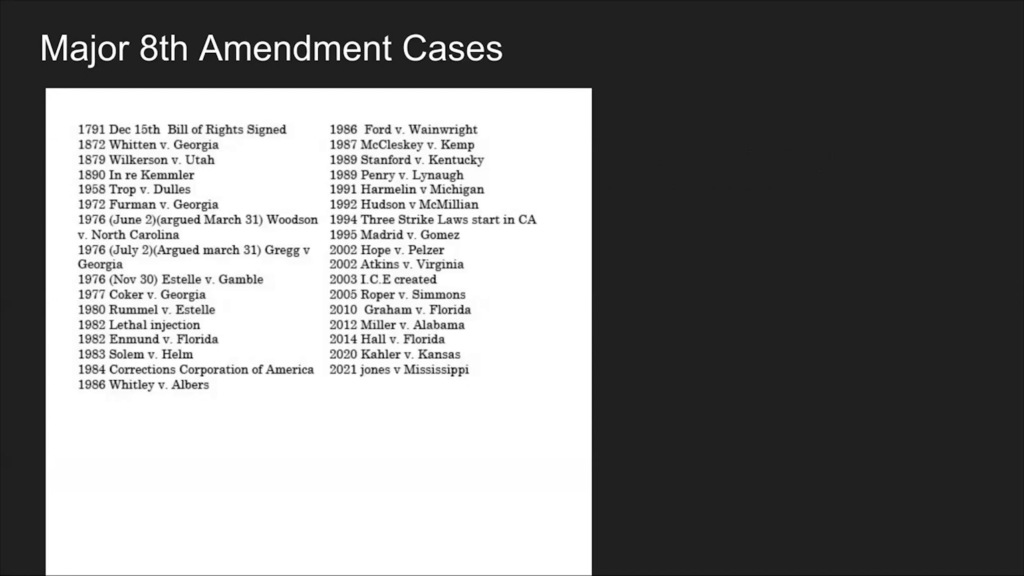
Despite the unwieldy concept of mass culture change, I find this empowering. I was curious to know where the evolution has taken us so far. I read most of the Supreme Court decisions that deal with Eighth Amendment cases. I pulled out cases that felt like they demonstrated this evolutionary shift.
In examining them, a few things came forward. One, what was once normal is now abhorrent. It is astounding how recently laws condoned things that now seem abhorrent. For example, when do you think we stopped executing children? 2005 is when in Roper v. Simmons the Court determined that the majority of Americans now oppose sentencing children to death. That seems very recent to me.
Three, that evolution is not linear. For four years in the 1970s, the death penalty was unconstitutional. It was then reinstated in 1976. Another example: generally laws around sentencing children have been trending away from mandatory sentences and life without parole, yet just last year the Court decided that it was again okay to give children life without parole.
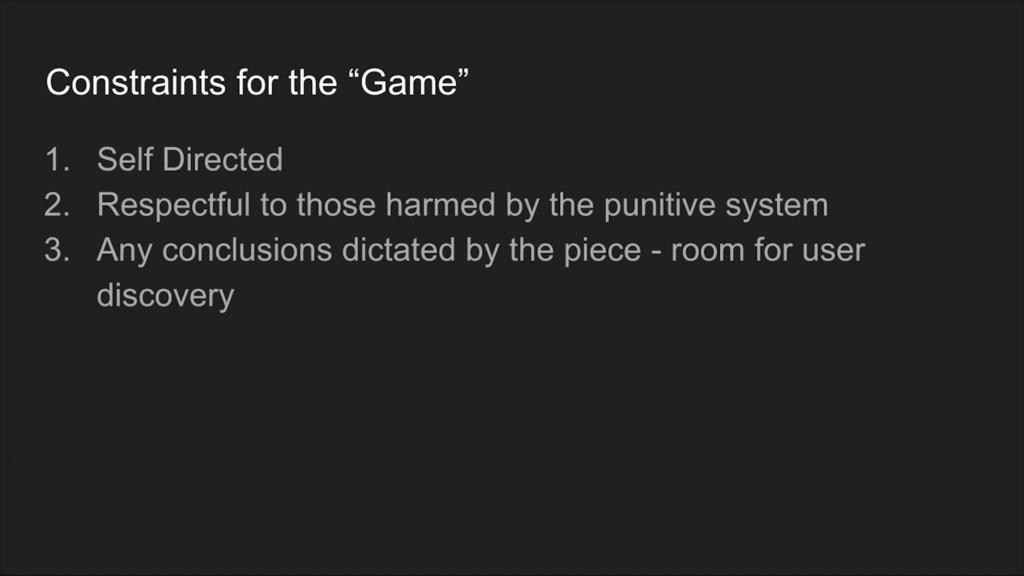
So it is this inquiry that is the concept behind my game. These are the constraints that I thought would make it successful. I wanted to be self-directed. I want people to be able to walk up and be able to play without any instruction. I need it to be respectful to those harmed by the punitive system. I didn’t want to make a game that made light of bona fide prison or sentencing. I wanted any conclusions to be arrived at by the user and not proscribed by the piece.
Justice is so often envisioned by the metaphor of scales and balance. I’m making a gimbaled marble labyrinth. The gimbal allows for balance, but it is set by the user. The gimbal allows players to tilt the surface of the maze in all directions and use gravity to control the marble within the pathways of the labyrinth.
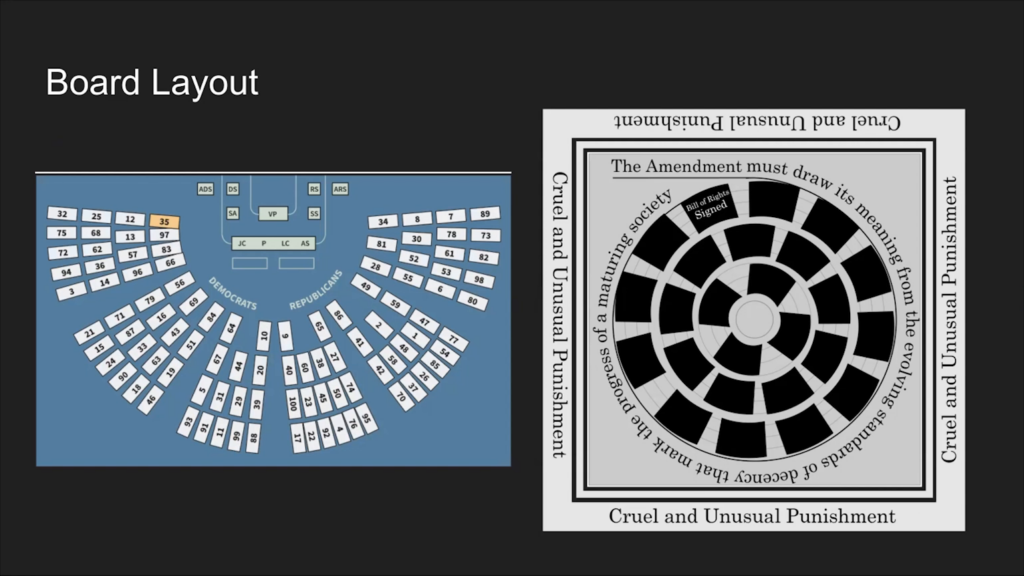
The layout is inspired by seating arrangements of the Senate and House. The marble’s path begins by tracing the words “The Amendment must draw its meaning from the evolving standards of decency that mark the progress of a maturing society.” This frames how I want players to consider the cases that follow. Beginning with the signing of the Bill of Rights, the players shift the surface of the table to guide a marble through major Eighth Amendment cases. The goal of gameplay is to stay on the path and not fall into the holes which represent the areas of the punitive system that are not protected by the Eighth Amendment, like immigration jails or pretrial jails.
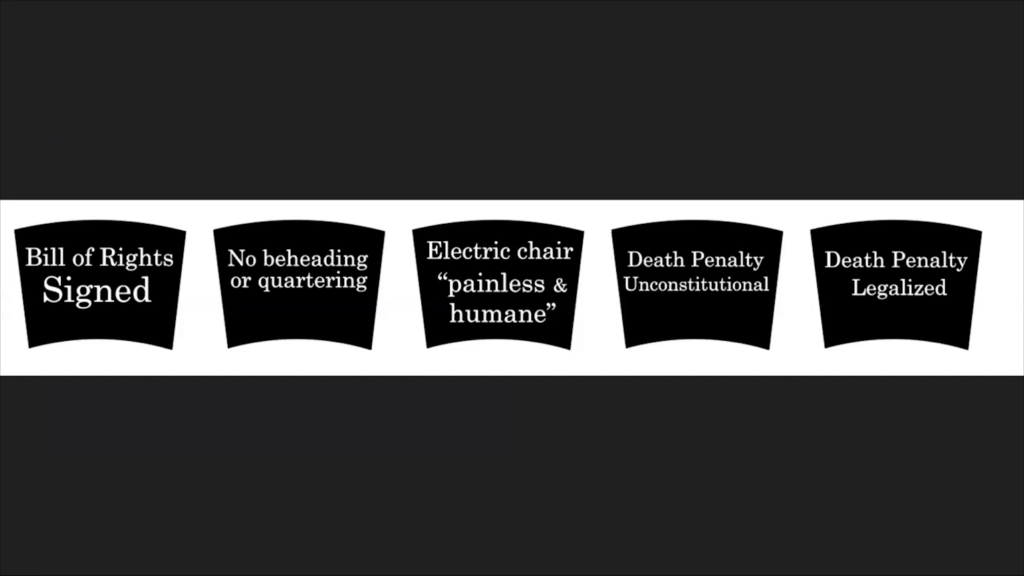
Each case is distilled into a succinct statement. All legal terms that enable us to remain distanced have been reverted to the simplest layman terms. For instance, “juvenile” and “minor” are instead called “children.”
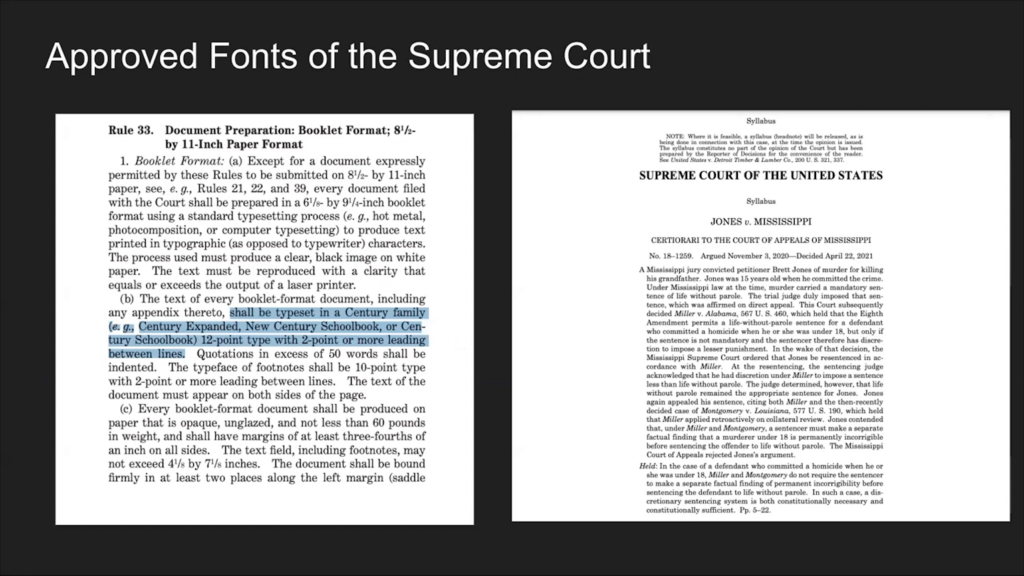
The feel of the game will be fairly institutional. CNC’d plywood will be painted black, gray, and white; holes to avoid will be rimmed with red. The documents of the Supreme Court are only allowed to be in certain fonts: Century Schoolhouse or slight variations. And so the game and the accompanying materials will also follow those rules.
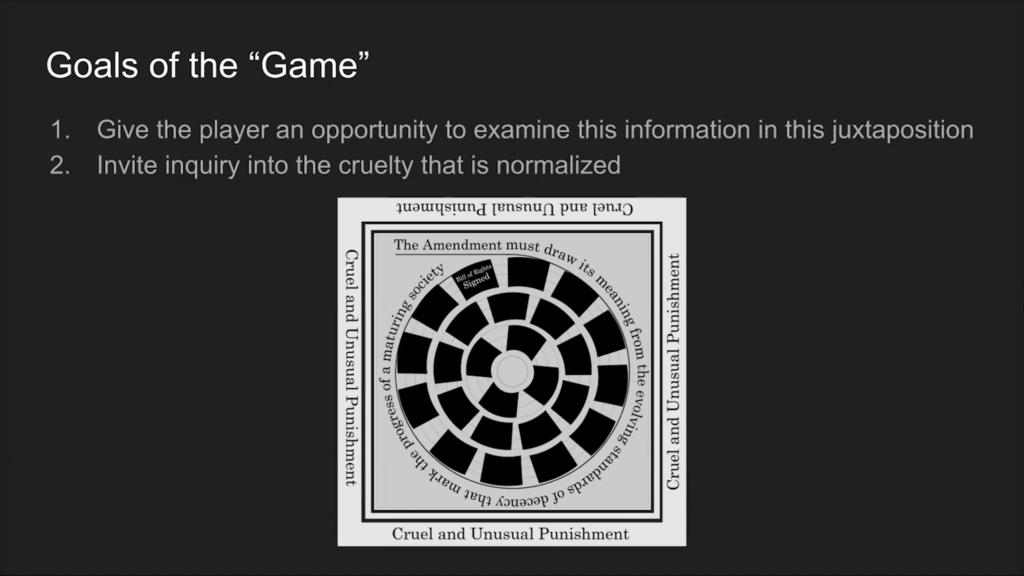
Overarching goals of the game for me the designer, are to essentially slow a player down enough to give them an opportunity to examine this information in juxtaposition and invite inquiry into the cruelty that is normalized.
vlc-00_12_33-2022–06-08–02h56m51s302
I would like to thank Robin Reid, Olwyn Conway, Keramet Reiter, Paul Grotas, Lea Rosen, Marty Tankleff, Marc M. Howard, Sara Bennett, and Alec Karakatsanis for generously sharing their expertise. Thank you Golan for hosting these presentations.
So, you will all be able to play this game in Federal Hall three months from now. And I have so many legal scholars and people to thank, and thank you Golan for hosting these presentations.
